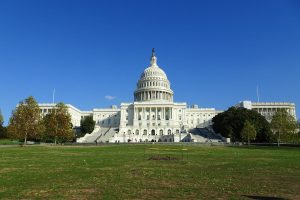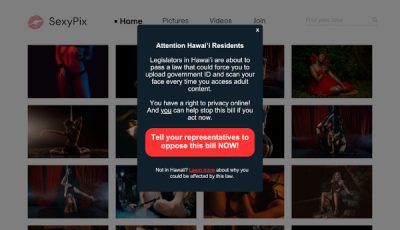FSC Details Industry’s Debanking Concerns to Congress
 WASHINGTON, D.C. – In a blog post published yesterday, the Free Speech Coalition (FSC) said the organization was “proud to hear our Statement for the Record on the debanking of our community publicly acknowledged by Ranking Member Maxine Waters as part of the House Financial Services hearing” last week.
WASHINGTON, D.C. – In a blog post published yesterday, the Free Speech Coalition (FSC) said the organization was “proud to hear our Statement for the Record on the debanking of our community publicly acknowledged by Ranking Member Maxine Waters as part of the House Financial Services hearing” last week.
According to FSC, the submitted statement “will become part of the official Congressional Record, continuing the formal dialogue with Congress on this critical issue.”
In the statement submitted to House Committee on Financial Services, FSC Executive Director Alison Boden wrote that “despite being a lawful industry that adheres to legal and financial compliance requirements, FSC members continue to experience systematic debanking – a practice that deprives individuals and businesses of fundamental financial services without clear justification.”
“As financial institutions and federal banking regulators appear to apply subjective moral judgments rather than objective risk assessments, thousands of legal workers, independent entrepreneurs, and businesses are left without access to banking, payment processing, and lending,” Boden added.
Boden emphasized that the issue of debanking “is not theoretical,” adding that “it has profound, tangible consequences for law-abiding Americans.”
“According to FSC’s 2023 Financial Discrimination and the Adult Industry Report, nearly 80% of surveyed industry professionals reported experiencing some form of financial unfairness, and 63% had an account closed by a bank or digital payment provider, such as Zelle, Cash App, Paypal, or Venmo,” Boden noted. “These closures often occur without warning, due process, or clear reasoning.”
FSC attributed the “current wave of debanking” in the adult industry to “unclear and overly broad regulatory guidance, particularly from the Financial Crimes Enforcement Network (FinCEN).”
“While financial institutions and digital payment platforms are not required to close accounts merely because of Suspicious Activity Reports (SARs), many institutions claim that FinCEN’s guidance leaves them no choice,” Boden observed. “This chilling effect creates a de facto prohibition on financial services for an entire legal industry.”
The FSC statement includes several “personal testimonies” from members of the adult industry detailing the “human cost of financial exclusion.” One independent content creator and small business owner identified only as “Maeve” said that in Fall, 2022, “Charles Schwab shut down my checking account with no reason given.”
“I was receiving payments from my main streaming site and OnlyFans,” Maeve added. “The closure letter was dated within one week of my last OnlyFans deposit. Upon contacting the bank, I was told they would not provide a reason and that there was no appeals process. I was not allowed to speak with anyone above frontline customer service agents.”
In the statement, FSC urged Congress to take several steps to “ensure financial fairness and equal access for all legal businesses.” Those measures include clarifying FinCEN guidance, ending “arbitrary debanking,” promoting a “truly risk-based approach” and increasing “congressional oversight of financial institutions’ practices.”
“The ongoing debanking of the adult industry raises serious concerns around financial fairness and due process,” Boden wrote. “The denial of basic financial services to a lawful industry undermines fundamental American values – economic freedom, equal opportunity, and the rule of law. FSC remains committed to working with Congress, regulatory agencies, and financial institutions to ensure that all Americans – regardless of their lawful profession – have equal access to the financial system.”
Read the full FSC statement to the House Committee on Financial Services here.
Photo of the United States Capitol by Natalia FaLon from Pexels













